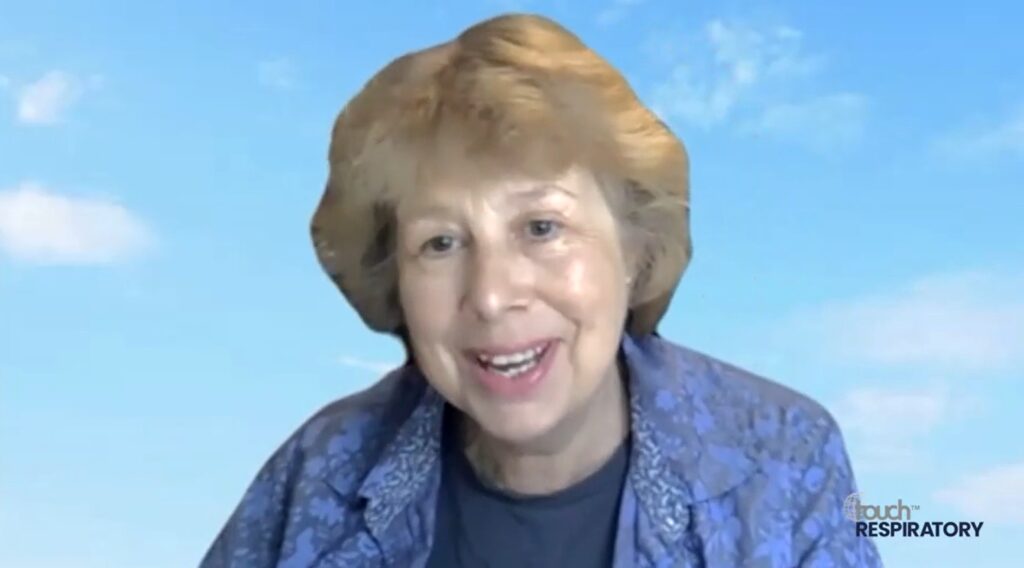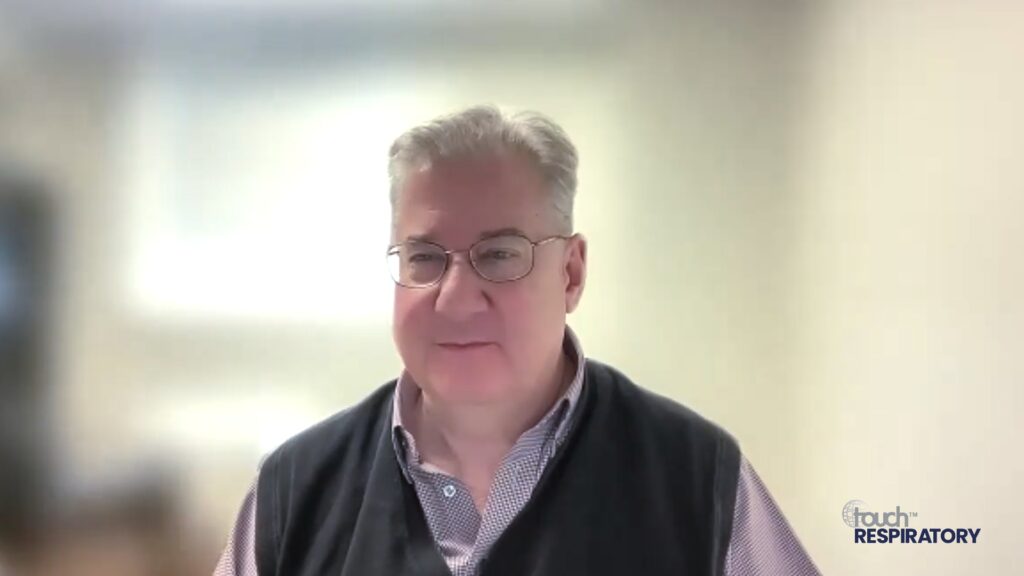



Is AI the future of decision-making in asthma diagnosis and treatment?
Artificial intelligence is no longer a futuristic concept in respiratory care — it’s already here, reshaping how we diagnose and manage asthma. In this insightful interview, Dr Alan Kaplan shares how AI is helping bridge long-standing gaps in asthma diagnosis, adherence, and disease control.
Precision Care in Respiratory Immunology – an Interview with Future Leader, Dr Michelle Korah-Sedgwick
In this Future Leaders interview, Dr. Korah-Sedgwick outlines how her interest in immune deficiencies in chronic lung disease grew from her fellowship training and collaboration with pulmonary colleagues.
Targeting a Rare and Aggressive Lung Cancer: A Study of Inhaled Osimertinib for Malignant Pleural Mesothelioma: Mural Quadros, ATS 2025
In this interview, Mural Quadros, PhD candidate, Industrial Pharmacy (St John’s University, New York, USA) discusses current treatment challenges in MPM, the rationale for investigating osimertinib in this indication, and the key findings from their preclinical study.
Innovating Tuberculosis Diagnosis in Global Health: An Interview with Future Leader, Dr. Véronique Suttels
In this Future Leaders interview, Dr. Suttels outlines her career trajectory in TB, shares perspectives on aligning technological innovation with practical healthcare needs, and reflects on ethical considerations in global health research.
01. Is AI the future of decision-making in asthma diagnosis and treatment?
02. Precision Care in Respiratory Immunology – an Interview with Future Leader, Dr Michelle Korah-Sedgwick
03. Targeting a Rare and Aggressive Lung Cancer: A Study of Inhaled Osimertinib for Malignant Pleural Mesothelioma: Mural Quadros, ATS 2025
04. Innovating Tuberculosis Diagnosis in Global Health: An Interview with Future Leader, Dr. Véronique Suttels

In this episode, we speak with leading paediatric allergist Prof. Helen Brough to explore the key factors behind why some children develop allergies to foods such as peanuts, and what we can do to help prevent them. We also examine the latest developments in managing food allergies and the innovations on the horizon that could transform how we treat them.

Physician burnout is at a critical point. In this episode, Nicky speaks with Dr Alfred Atanda about why so many physicians are burning out and what can be done to change the trend. From personal experience to system-wide solutions, Dr Atanda shares valuable insights on improving physician well-being and building a more effective healthcare culture.

In this episode, we explore the future of continuing medical education (CME) with the team behind touchIME. Hannah Fisher and Matthew Goodwin share insights into global and US trends, the importance of patient inclusivity and how educational outcomes are evolving to better measure the direct impact of learning on clinical practice and patient care.

In this episode, Professor Irene Higginson, Director of Better Health and Care Futures at King’s College London, discusses the complex challenges of managing breathlessness. She explores non-pharmacological strategies, the value of multidisciplinary care, and how the Breathlessness Support Services at KCL are transforming patient support. Tune in for expert insights and a look at future directions in breathlessness research and care.

Want to be featured in touchReviews in Respiratory?
Share your knowledge, influence clinical practices and enhance patient care in Respiratory today!
- Peer-reviewed, free-to-access
- Accepting reviews, research and editorials
- No article processing fees
- Digital features and plain language summaries
- Multichannel content distribution for maximum visibility

Asthma affects nearly 300 million people worldwide.1 Despite a notable decline in age-standardized prevalence, mortality and disability-adjusted life years over the past three decades, the burden of asthma remains high in many countries including low-middle-income countries.2 Climate change is also predicted ...
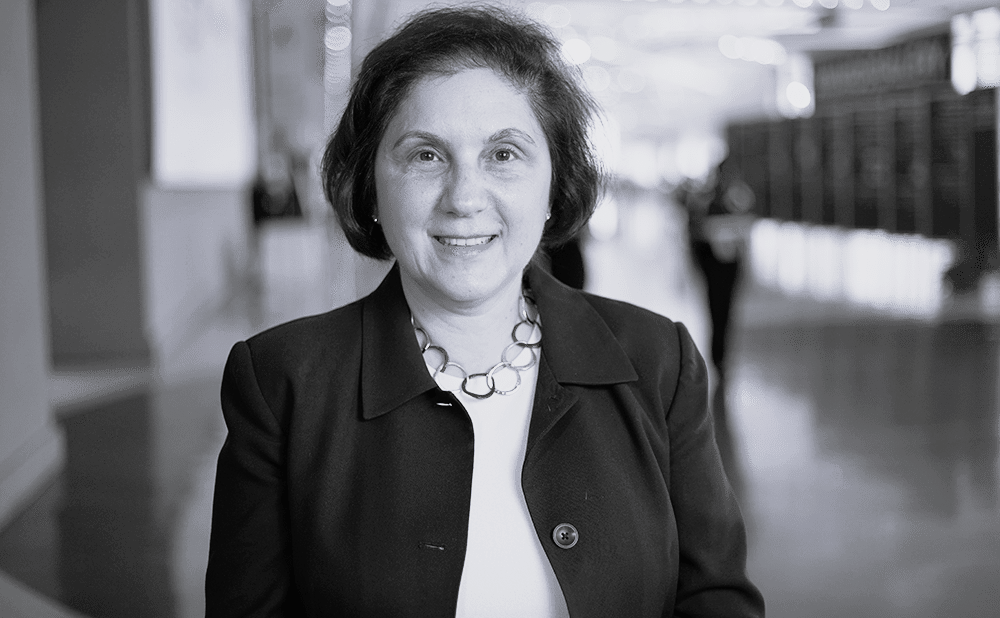
Welcome to the latest edition of touchREVIEWS in Respiratory & Pulmonary Diseases. As we continually strive to deliver cutting-edge research and insightful commentary, this issue is no exception, featuring a diverse array of articles that illuminate both emerging treatments and ...

Approximately half of all smokers will develop chronic obstructive pulmonary disease (COPD), with a disease progression over several years before the spirometric threshold for diagnosis is reached.1 There is, therefore, a clear benefit in identifying patients with COPD as early ...

The nasal airway serves as the primary entry point of air and oxygen into the body. It serves critical functions, such as providing a physical barrier against external irritants and pathogens and warming and humidifying incoming air.1 Consequently, disorders of ...

Pentraxin-2 is a member of the pentraxin family of proteins, which includes C-reactive protein (CRP), pentraxin-2 and pentraxin-3.1–3 When initially discovered and characterized, pentraxin-2 was known as serum amyloid P (SAP) due to its isolation from amyloid deposits in humans; ...

Paediatric sleep-disordered breathing Sleep-disordered breathing (SDB) is defined as the disruption of normal respiration and ventilation while asleep.1 SDB encompasses multiple sleep disturbances, ranging from mild snoring to obstructive sleep apnoea (OSA).1,2 OSA is characterized by episodic partial or complete ...

Interstitial lung diseases (ILDs) are a heterogeneous group of disorders characterized by inflammation and/or fibrosis.1 Pulmonary fibrosis develops due to repeated cycles of injury and impaired repair with fibroblast activation and migration with the resultant deposition of extracellular matrix ...

Acute exacerbations of chronic obstructive pulmonary disease (AECOPD) are the dominant cause of the worsening and high mortality of chronic obstructive pulmonary disease (COPD), and are associated with higher healthcare costs as part of COPD management. AECOPD is characterized by ...

Lung cancer accounts for the highest cancer-related mortality and is the second most common cause of malignancy worldwide.1 Diagnosis at an early stage (ES) has a direct effect on management and survival rates. Overall, the 5-year survival rate from 2013 to 2019 ...

The topic of the carbon footprint of human activities is one frequently discussed worldwide. There have been conscious efforts across multiple fields, including healthcare, to reduce their carbon footprint. In Canada, 4.6% of greenhouse gases (GHG) are manufactured by the healthcare ...

Chronic cough is a cough that lasts 8 weeks or longer and is not due to serious underlying conditions. It is a common problem in primary care, accounting for up to 40% of referrals to pulmonologists.1 Common causes include rhinosinusitis, cough-variant asthma, ...
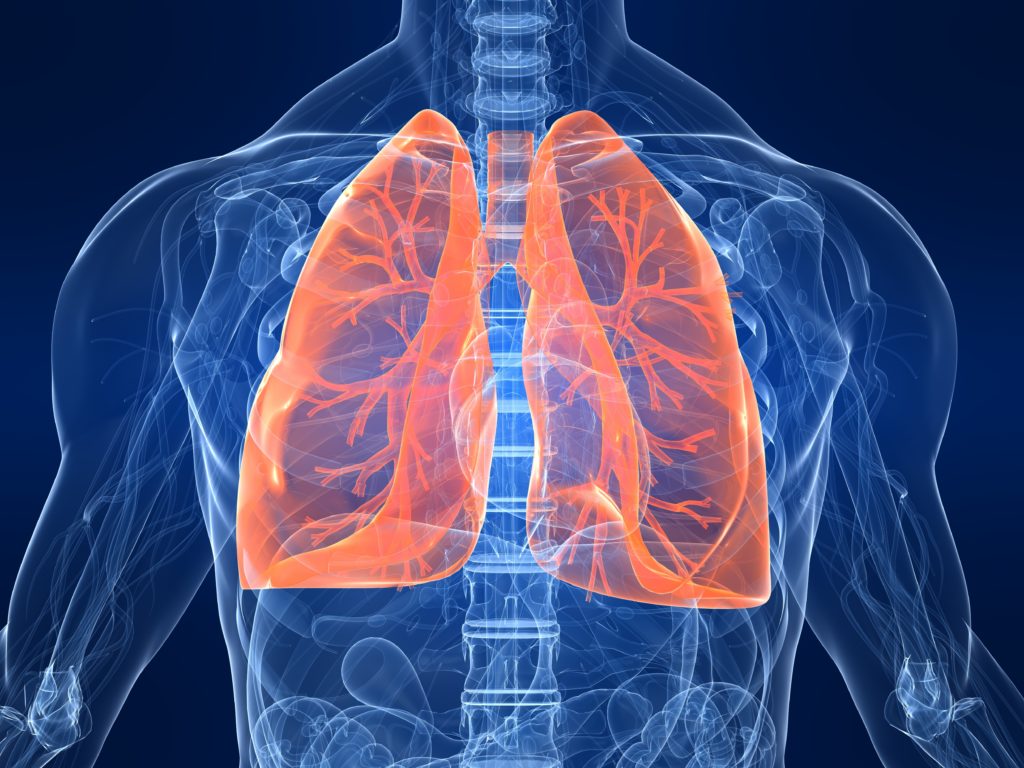
Asthma is a heterogeneous disease with notable variation in its clinical course and response to treatment. Despite management with standard-of-care therapies, a proportion of patients remain uncontrolled and at risk of life-threatening exacerbations and disease worsening. Advances in understanding the ...
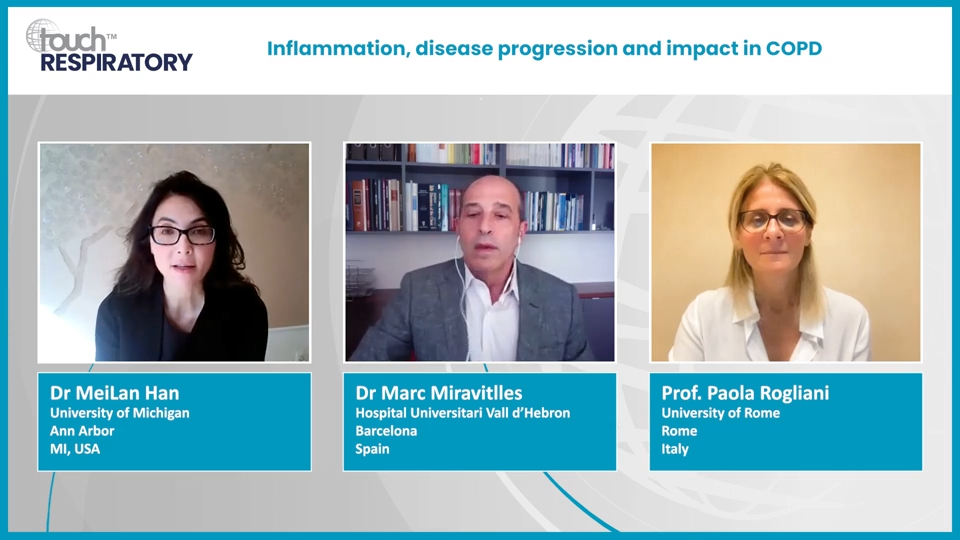
Leading experts discuss the role of different inflammatory pathways in COPD disease progression.
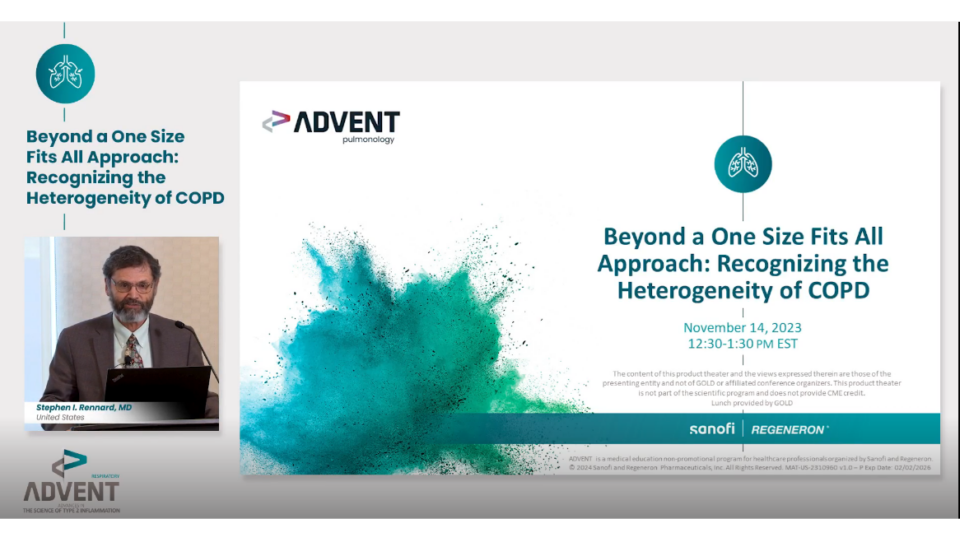
Watch a short video presentation on the diagnosis and assessment of COPD according to the 2024 GOLD report, focusing on clinical features and assessment goals.
Then join leading experts as they discuss the latest advances in understanding COPD, originally presented by Sanofi and Regeneron Pharmaceuticals in two symposia at ERS 2023 and GOLD 2023.

Editorial Board
Introducing the Editorial Board of touchREVIEWS in Respiratory, who support our mission to advance medical knowledge and practice by ensuring the integrity, relevance, and impact of the content we publish. Together, we strive to foster a vibrant academic community and contribute to the continuous improvement of healthcare worldwide.
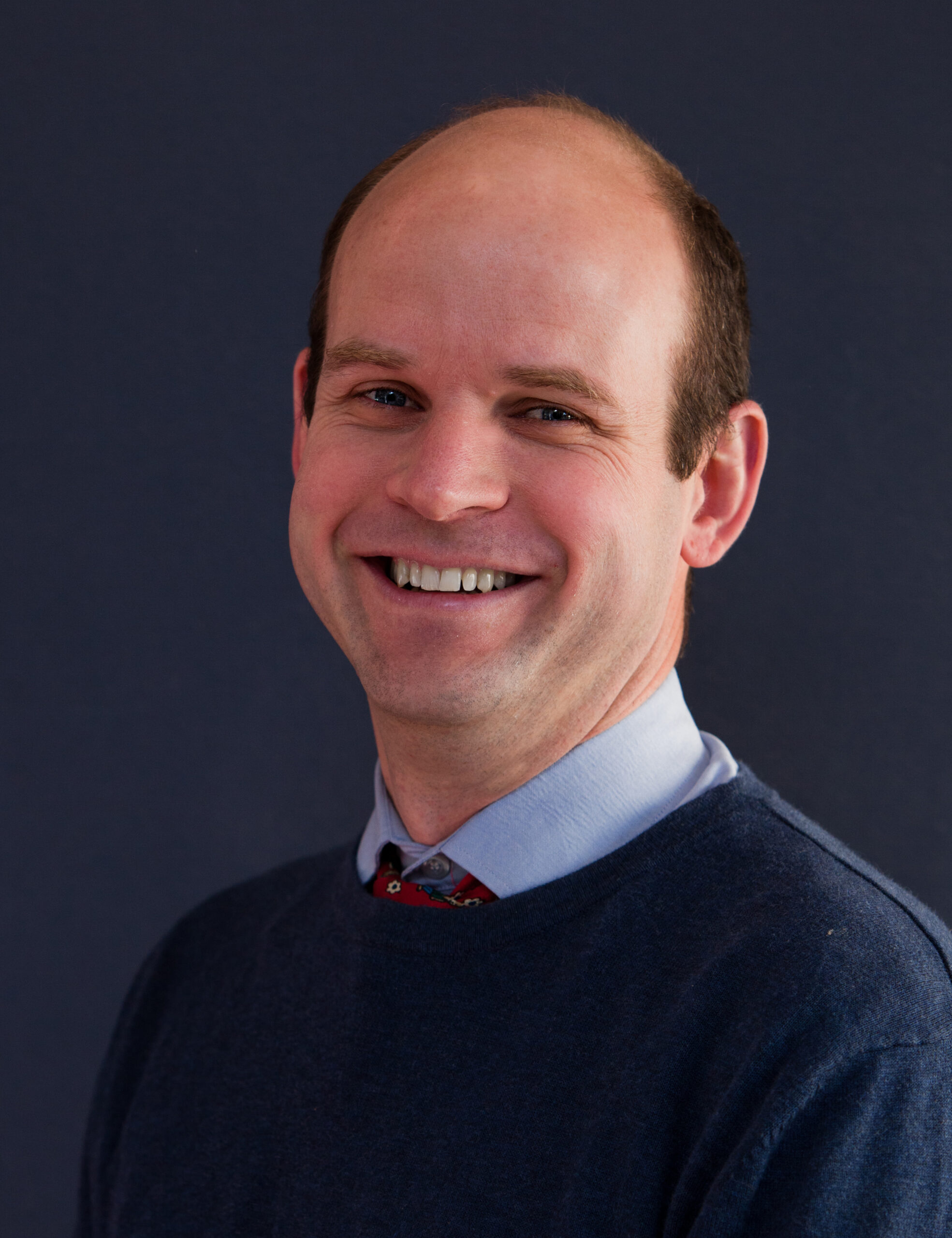
Richard Van Zyl-Smit
Cape Town, South Africa
Asthma

Richard Van Zyl-Smit
Editor-in-Chief
Consultant Pulmonologist at Groote Schuur Hospital, Cape Town, South Africa, and Deputy Head of the Division of Pulmonology at the University of Cape Town, South Africa
Biography
Professor Richard van Zyl-Smit is a consultant pulmonologist at Groote Schuur Hospital, Cape Town, South Africa, and Deputy Head of the Division of Pulmonology at the University of Cape Town, South Africa. He is a principal researcher at the University of Cape Town Lung Institute and is President Elect of the South African Thoracic Society. His major clinical and research interests are airway diseases, specifically: asthma and COPD with a focus on tobacco, household air pollution, electronic cigarettes, and their impact on pulmonary immune responses (to pneumococcal and mycobacterial infection) and the development of COPD. He has over 80 peer reviewed publications and he has additionally been involved in industry sponsored research for over 13 years across a spectrum of pulmonary disorders. He serves on the American Thoracic Society International Health Committee and is passionate about teaching, training, sustainability and mental health in health care. He is the South African representative on the GOLD assembly and a GINA global ambassador. After qualifying as a pulmonologist, he completed a basic science PhD investigating the effects of tobacco smoke and nicotine on human pulmonary defence mechanisms to tuberculosis infection.

Margaret Pisani
Faculty Member

Margaret Pisani
New Haven, CT, USA

Margaret Pisani
Faculty Member
Professor of Internal Medicine (Pulmonary, Critical Care & Sleep Medicine) at Yale University School of Medicine, New Haven, CT
Biography
Dr Margaret A Pisani is an Associate Professor of Medicine at Yale University School of Medicine. Dr Pisani received a BS in physics from Iona College and an MS in biomedical engineering from New Jersey Institute of Technology. She received her MD from Temple University in 1994 and an MPH from Yale University in 2001. She did her internship, residency, and pulmonary and critical care fellowship at Yale University. In addition, she served as Chief Medical Resident at Yale. Dr Pisani then joined the faculty in the Department of Medicine, Division of Pulmonary, Critical Care and Sleep Medicine at Yale University School of Medicine. She has held several administrative and leadership roles at Yale including Associate Winchester Clinic Director, Director of Respiratory Care and Pulmonary & Critical Care Fellowship Program Director. Her research is based in the intensive care unit where she studies delirium and sleep in critical illness. She also studies the care of older ICU patients and functional and cognitive outcomes after critical illness. In addition, she collaborates on research of interventional pulmonary procedures, lung cancer screening and pleural disease.
Richard Van Zyl-Smit
Editor-in-Chief


Juzar Ali
Faculty Member

Juzar Ali
New Orleans, LA, USA

Juzar Ali
Faculty Member
Klein Professor of Medicine, Section Pulmonary/Critical Care & Allergy/Immunology, and Director, Wetmore
Mycobacterial Disease Program at Louisiana State University Health Sciences Center, New Orleans, LA
Margaret Pisani
Faculty Member


Harly Greenberg
Editorial Board member
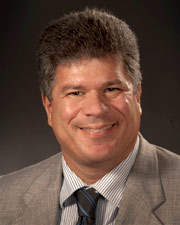
Harly Greenberg
NY, USA
Pulmonary and sleep medicine

Harly Greenberg
Editorial Board member
Chief, Division of Pulmonary, Critical Care and Sleep Medicine; Medical Director, Northwell Health Sleep Disorders Center; Professor of Medicine, Zucker School of Medicine at Hofstra-Northwell Department of Medicine, New Hyde Park, NY, USA
Biography
Dr Harly Greenberg is Chief of the Division of Pulmonary, Critical Care and Sleep Medicine, Department of Medicine at North Shore University Hospital and Long Island Jewish Medical Center, Northwell Health in New York and Associate Director of the Northwell Health Lung Institute, Medical Director of the Northwell Sleep Disorders Center and Professor of Medicine Zucker School of Medicine at Hofstra-Northwell.
Dr Harly Greenberg is a recognized expert in sleep medicine and has helped to advance the field of sleep medicine as an investigator or co-investigator in multiple clinical research trials. His research has contributed to our understanding of the cardiovascular consequences of obstructive sleep apnea. In addition, Dr. Greenberg was a co-investigator in a major international clinical trial that established the efficacy of continuous positive airway pressure therapy as an important treatment for patients with milder forms of obstructive sleep apnea. His work has also contributed to the development of new therapies for sleep apnea and other sleep disorders. He is also a co-investigator on a research protocol on central neural correlates of respiratory sensation and dyspnea, funded by NHLBI.
Juzar Ali
Faculty Member


Richard Van Zyl-Smit
Editor-in-Chief

 touchRESPIRATORY
touchRESPIRATORY
Register Now!
Explore the latest in medical education and stay current in your field. Create a free account to track your learning.
- Save your progress for video
- Keep track of your CME credits
- Add personalised learning notes
- Receive updates from course leaders and faculty
- Be the first to hear about new and exciting interactive learning opportunities
Latest articles videos and clinical updates - straight to your inbox
Log into your Touch Account
Earn and track your CME credits on the go, save articles for later, and follow the latest congress coverage.
Register now for FREE Access
Register for free to hear about the latest expert-led education, peer-reviewed articles, conference highlights, and innovative CME activities.
Sign up with an Email
Or use a Social Account.
This Functionality is for
Members Only
Explore the latest in medical education and stay current in your field. Create a free account to track your learning.





